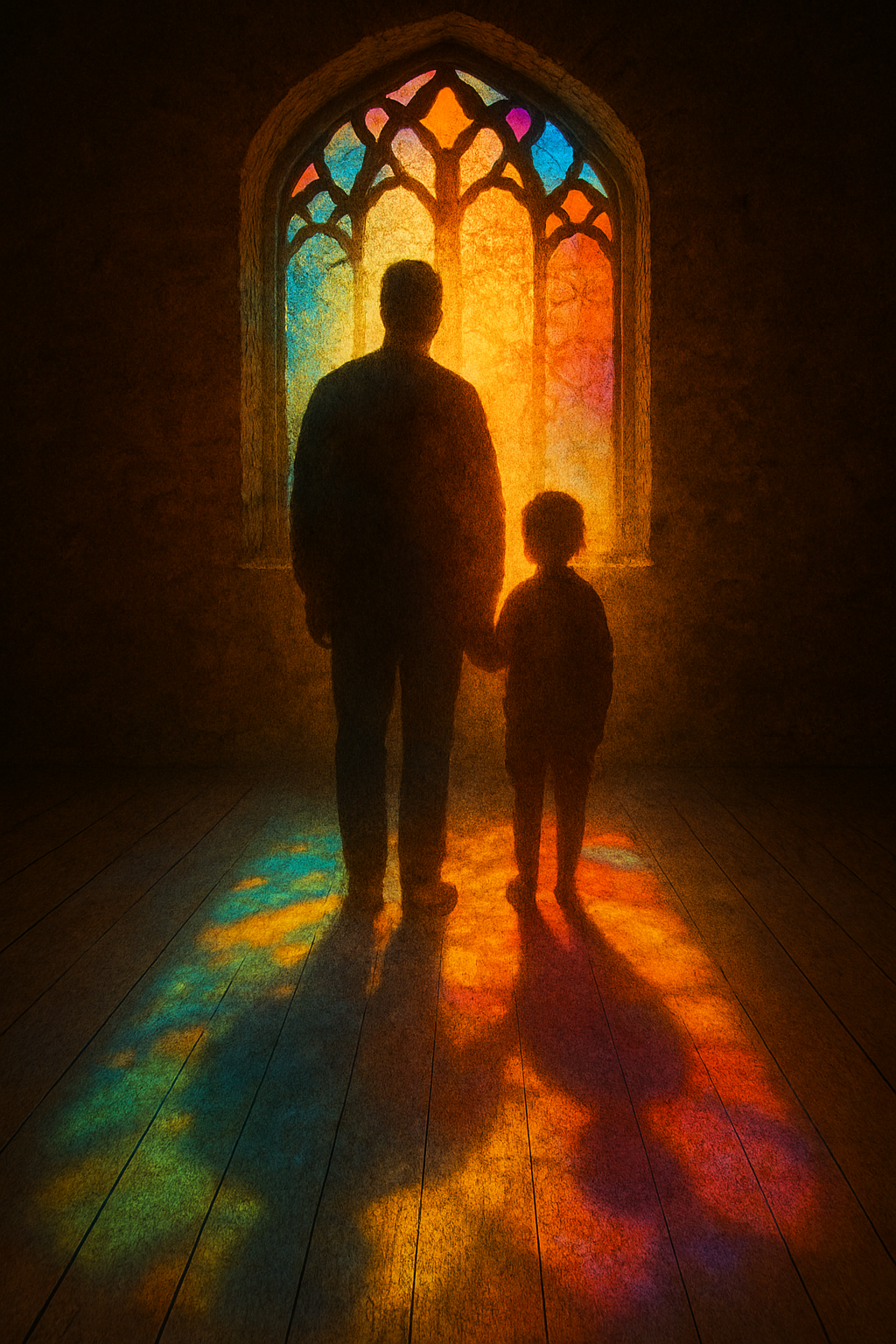If the breakfast nook is a chapel, then my parents are the stained-glass windows—coloured panes through which all light must pass before it reaches me. I find myself, more and more these days, thinking of them, especially as their generation begins to dwindle. Their friends and siblings pass away one by one, and with each departure, the world tilts further toward my own mortality.
There is something profoundly humbling about realizing that we are, in many ways, compilations of our parents’ unfinished sentences. Their choices, virtues, eccentricities, and blunders live on in us, whether we like it or not. My mother’s tenderness when faced with the sorrow of others, I find myself repeating it, often unconsciously. My father’s stubbornness about trivial matters, alas, that too has found comfortable lodging in my soul.
I used to think that to live well was to strike out on one’s own path, to build something fresh and untainted by what came before. But as I grow older, I see that the “fresh path” was never truly fresh. It was paved, in large part, by the patient labour of those who came before me. My parents sacrificed things I never knew to give me choices I now take for granted. Their mistakes, too, were part of my inheritance, shaping the limits and possibilities of my own experiments.
It is fashionable in some circles to speak of “breaking free” from one’s parents, as though they were shackles. But I find the metaphor distasteful. Better, perhaps, to think of them as trellises upon which we grew, imperfect supports that nonetheless lifted us toward the sun. A life well lived, in this sense, is not a rejection of their shadows but an honest reckoning with them: to acknowledge their flaws without bitterness, to celebrate their gifts without idolatry, and to recognise that their story is, in some inescapable way, part of our own.
As I watch my parents age, I am struck by how fragile the line between contribution and disappearance truly is. What remains of them, ultimately, will be what they have poured into me and my siblings, and what we in turn pour into those who come after. This is the arithmetic of legacy: it multiplies quietly, often unnoticed, until one day the sum is revealed in the lives of people who may never know the names of their great-grandparents.
And so I ask myself: what shadow will I cast? Will my nieces and nephews inherit patience, generosity, humour? Or merely impatience, distraction, and an overdeveloped taste for cynicism? The question is not meant to haunt but to guide. For if I can name the qualities of my parents that I most treasure, perhaps I can also become more intentional about cultivating those very qualities in myself.
In the end, our parents do not leave us when they die. They continue in the tilt of our heads, the timbre of our laughter, the strange phrases that roll off our tongues without our knowing where they came from. To live well, then, is to steward their presence wisely, to take the long shadow they cast and turn it into a source of shade for others.






I really appreciate yourBlog comment creation metaphor of parents as trellises rather than shackles—it captures so well the tension between dependence and growth. It reminds me that even the flaws we inherit can serve as structures that shape us, not just obstacles to overcome. Reading this makes me wonder how often what we call ‘individual choices’ are actually echoes of the sacrifices and missteps of those before us.